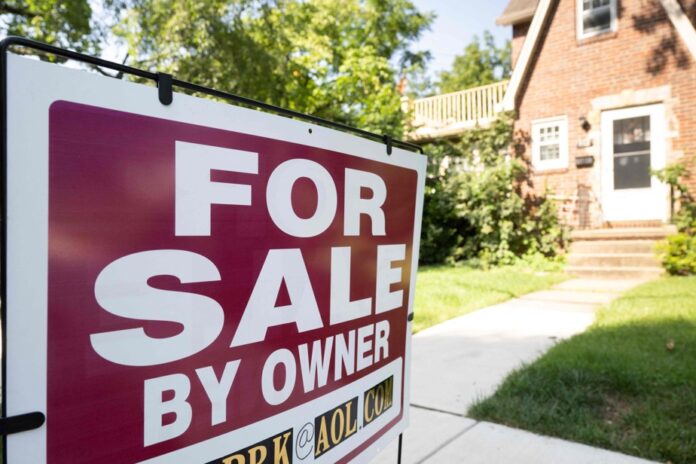(Washington) U.S. home loan rates rose to their highest level since 2002 on Thursday, adding pressure on buyers already facing a tight housing market with rising prices.
30-year loans, the most popular in the world’s largest economy, thus reached a rate of 7.09%, according to the weekly average observed by the group of real estate refinancing Freddie Mac, against 6.96% the previous week.
This is the first time since last November that mortgage costs have again exceeded 7%, the company said on its website.
The housing market has shown signs of weakening in recent months, particularly as Federal Reserve (Fed) interest rate hikes push up overall lending rates .
Such a rate “will make it even more difficult for households wishing to buy. It is more and more complicated to be a first-time buyer in this type of market, it becomes unaffordable,” said Oxford Economics chief economist Oren Klachkin.
But now, mortgages are also pulled up Thursday by the rise in bond yields, the highest since 2007: when the prices of Treasury bills fall, this increases their yield, which influences mortgages.
However, the Treasury is currently issuing an unusual amount of new bonds, while the federal government has resumed borrowing since the end of the debt ceiling crisis at the end of June, which is driving down the price of those already on the market. and therefore an increase in their yields.
The Fed also raised rates again in late July, for the eleventh time in 18 months.
While house prices remain one of the main causes of persistent inflation in the United States, the housing market has shown signs of weakness since the beginning of the summer, with home sales in June reaching their lowest level of the year, according to data from the National Association of Realtors (NAR).
But the cause is mainly the lack of homes put up for sale, according to the NAR, which keeps prices up.
“The higher the rates, the less likely you are to put your property up for sale because that means you’ll have to go from less than 4% loan to new at least 7% today, maybe 8% tomorrow,” Mr. Klachkin pointed out.















